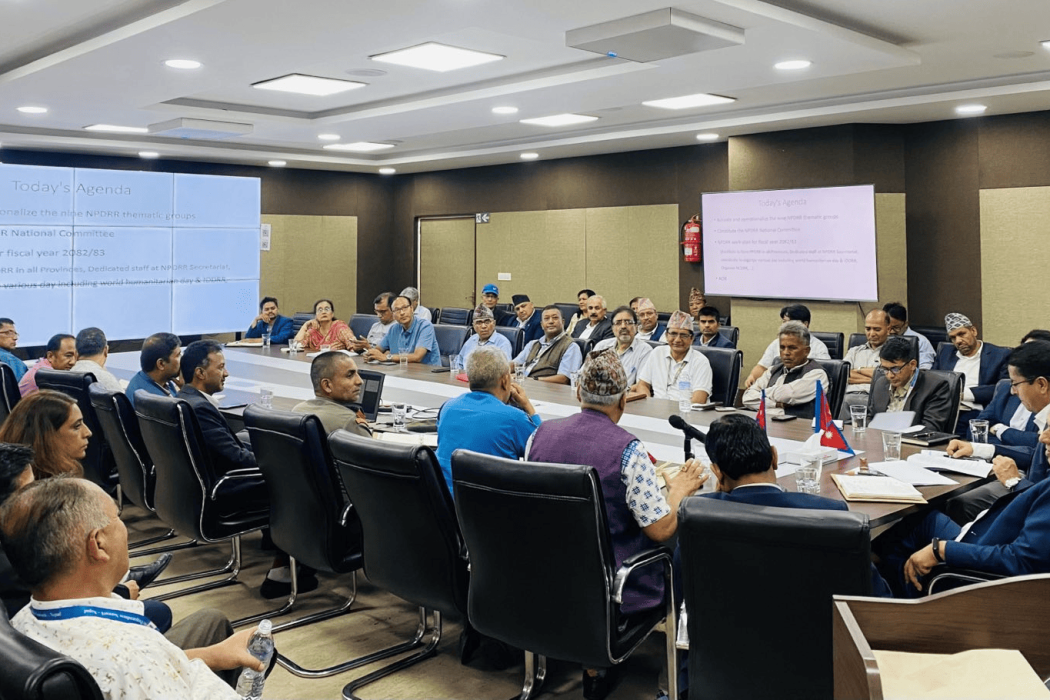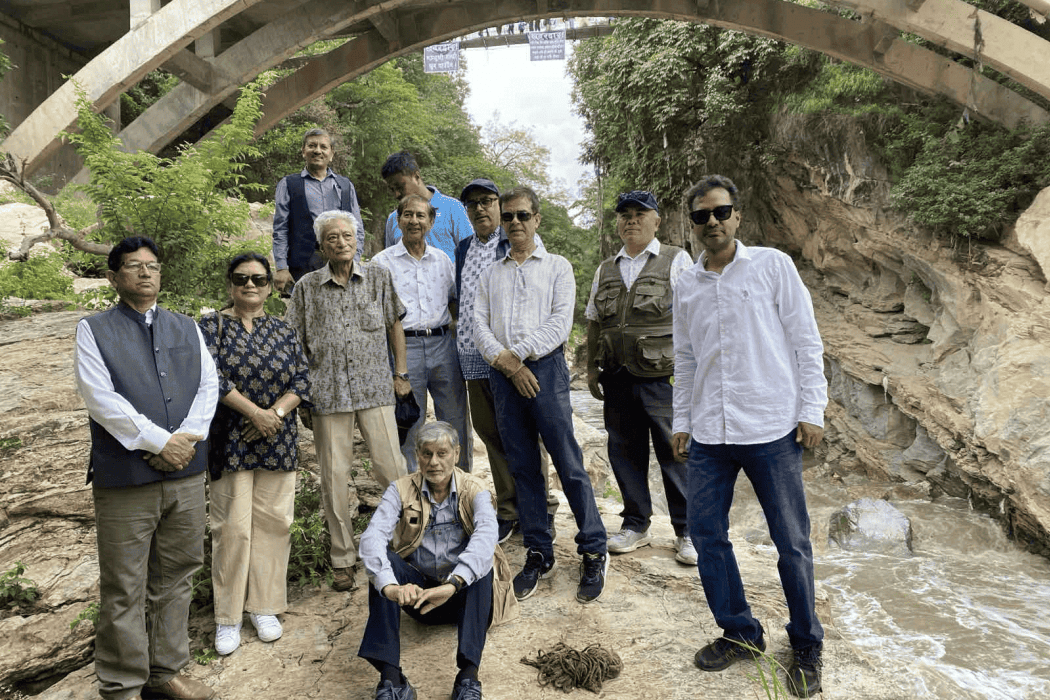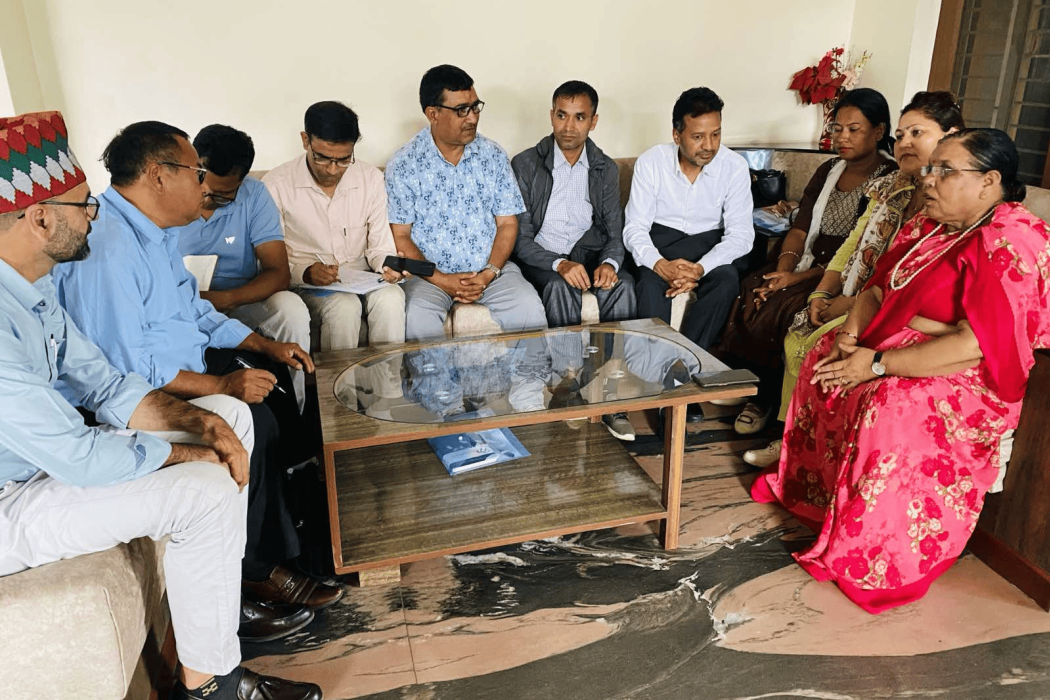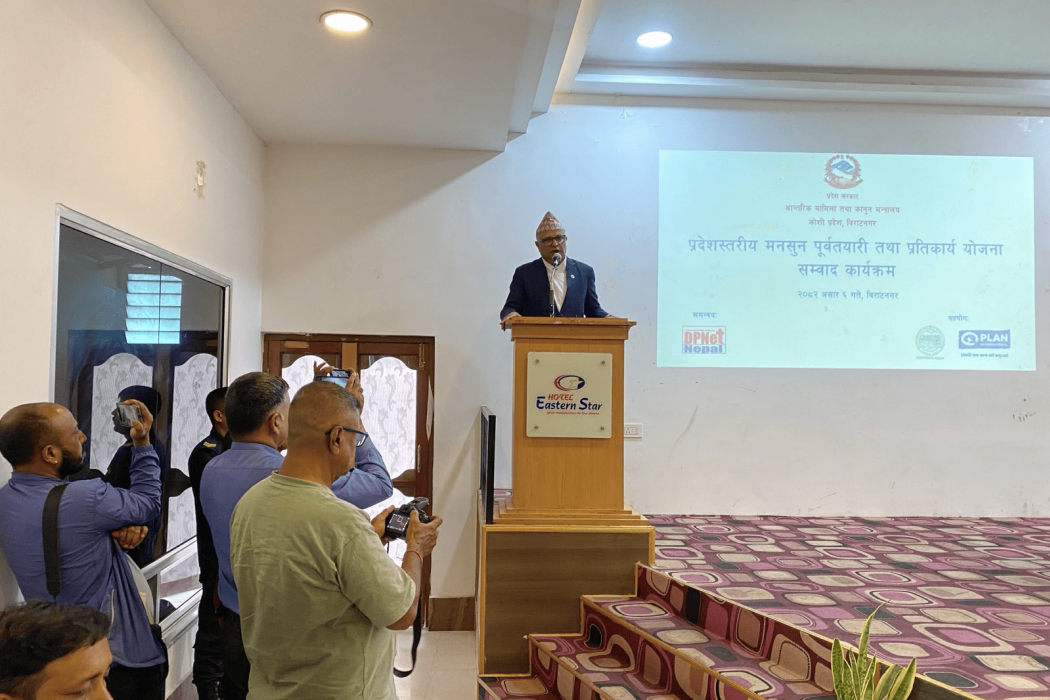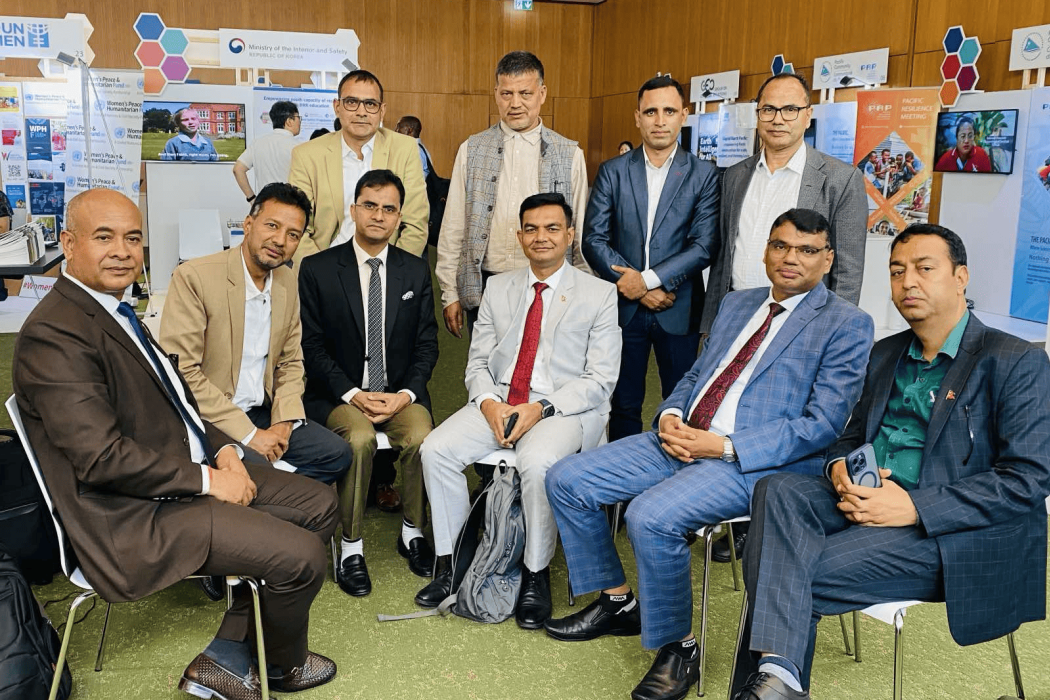NPDRR Meets to Revitalize Thematic Committees and Finalize the New Fiscal-Year Programme
The National Platform for Disaster Risk Reduction (NPDRR) opened the new fiscal year with a high-level meeting on 7 July 2025 at the NDRRMA. Chaired by NDRRMA Chief Executive and NPDRR Chair Dinesh Bhatt, the gathering drew senior officials from the Ministry of Home Affairs (MoHA) Dr. Tok Raj Pandey, line ministries, security forces and provincial governments, as well as representatives of United Nations agencies, bilateral donors, international and national NGOs, the private sector, academia, the media and disaster-affected communities.
DPNet Carries Out Observation Visit to Chobhar Gorge
Chobhar is now at the center of discussion following a rumor that the government is going to blast out bed and side rocks of the gorge to widen and deepen the Bagmati River ‘to solve the flood problem in Kathmandu valley’. The Chobhar Gorge is the outlet of the Bagmati watershed including Kathmandu valley, and surrounding mountains. In the recent years, Bagmati River and its tributaries get flooded during monsoon and affect adjacent settlements and urban infrastructures like roads and bridges. One of such devastating flood occurred on 28 September, 2024.
DPNet Koshi Province Board Meets with National Chair
On 20 June 2025 the DPNet convened a full-board meeting of its Koshi Province Committee, in the presence of DPNet Chair, Dr Raju Thapa. Provincial board members opened the session by outlining recent organisational milestones, ongoing partnerships and emerging challenges. After listening to these updates, Dr Thapa commended the team’s energy but urged them to pivot from isolated, project-level interventions toward a broader role as the province’s hub for coordination and collaboration in DRR.
Monsoon Preparedness Sensitization Workshop Held in Koshi Province
The Koshi Province Monsoon Preparedness Sensitization Workshop, held on 6 Ashadh 2082 (20 June 2025) in Biratnagar, convened provincial and local officials, security agencies, humanitarian partners, technical experts, and community organisations to align on the Provincial Monsoon Preparedness and Response Plan 2082. Organised by the Ministry of Internal Affairs and Law (MoIAL) with support from DPNet Nepal, PLAN International, and DEPROSC Nepal, the event aimed to forge a shared, action-oriented understanding of Koshi’s heightened flood- and landslide-risk as Nepal’s primary monsoon gateway. Opening remarks from the Hon. Chief Minister and MoIAL leadership highlighted the province’s commitment to evidence-based planning, decentralised coordination, and climate-resilient development.
Nepal's Unified Delegation Leaves Mark on GPDRR 2025 Outcomes
Geneva, Switzerland, June 6, 2025: The eighth edition of the Global Platform for Disaster Risk Reduction (GPDRR 2025), recognized by the UN General Assembly as the leading multi-stakeholder forum for assessing global progress on the Sendai Framework, concluded successfully today in Geneva. Organized by the United Nations Office for Disaster Risk Reduction (UNDRR) and hosted by the Government of Switzerland, this biennial event from June 2-6 brought together more than 3,400 delegates from 166 countries.
DPNet facilitates Workshop to Improve Humanitarian Response Training Manual Framework
DPNet, in collaboration with the Institute of Himalayan Risk Reduction (IHRR), facilitated a stakeholder consultation workshop on May 30, 2025, in Kathmandu to refine the Training of Trainers (ToT) Manual for Humanitarian Response Management Training. Supported by AWO International and Aktion Deutschland Hilft, the workshop gathered experts to ensure the manual addresses key issues such as anticipatory action, early warning systems, safeguarding, GEDSI, and local ownership. Key recommendations included practical, scenario-based training, integration of digital tools, enhanced coordination, and mechanisms to avoid duplication. The workshop concluded with a commitment to build a skilled humanitarian workforce and strengthen real-time response systems.
